When Vietnam introduced feed-in tariffs (FITs) for wind power in 2011 and 2018, and for solar power in 2017 and 2020, few expected that the policy would trigger a wave of large-scale investment from both domestic and international investors.
TTC Energy, PECC1 (Power Construction Consulting 1), Trung Nam Group, Truong Thanh Group - pioneering domestic names to foreign corporations such as The Blue Circle (Singapore), AC Energy (Philippines), Super Energy (Thailand)... have poured thousands of billions of VND into solar and wind power projects across the country. They are the early comers, daring to bet big on a young but promising market.
However, after a period of explosive growth, the dream of green electricity seems to be starting to fade. Many projects, even though they have been put into commercial operation, are still struggling because they have not been fully paid, only receiving temporary prices, cash flow is blocked, and financial plans are disrupted. They say they have invested according to the law, at the right time, but the "rules of the game" are constantly changing.
Cash flow is tightened, investors are struggling
Sharing with Dan Tri reporters , some investors in renewable energy projects shared that their biggest difficulty comes from not being paid for electricity in full. A series of wind and solar power plants have been completed and put into commercial operation but have a serious cash flow shortage, putting investors at risk of bad debt and breaking long-term financial commitments.
A representative of a foreign enterprise investing with domestic and foreign partners in about 20 renewable energy projects in Vietnam said that during the development, construction and operation process, the enterprise always complies with legal standards and operates according to Vietnamese law and international standards. However, the problem arises in the document approving the results of construction acceptance (CCA) - an administrative procedure under the scope of the Construction Law, not a mandatory condition for establishing the commercial operation date (COD) according to regulations before 2023.
"At the time of COD, CCA was not a mandatory regulation to enjoy FIT price. The company hired independent legal consultants and internal legal department to review but still did not fully anticipate this detail. As soon as we received the request, we completed the CCA procedure and paid the administrative fine according to regulations," said the representative.
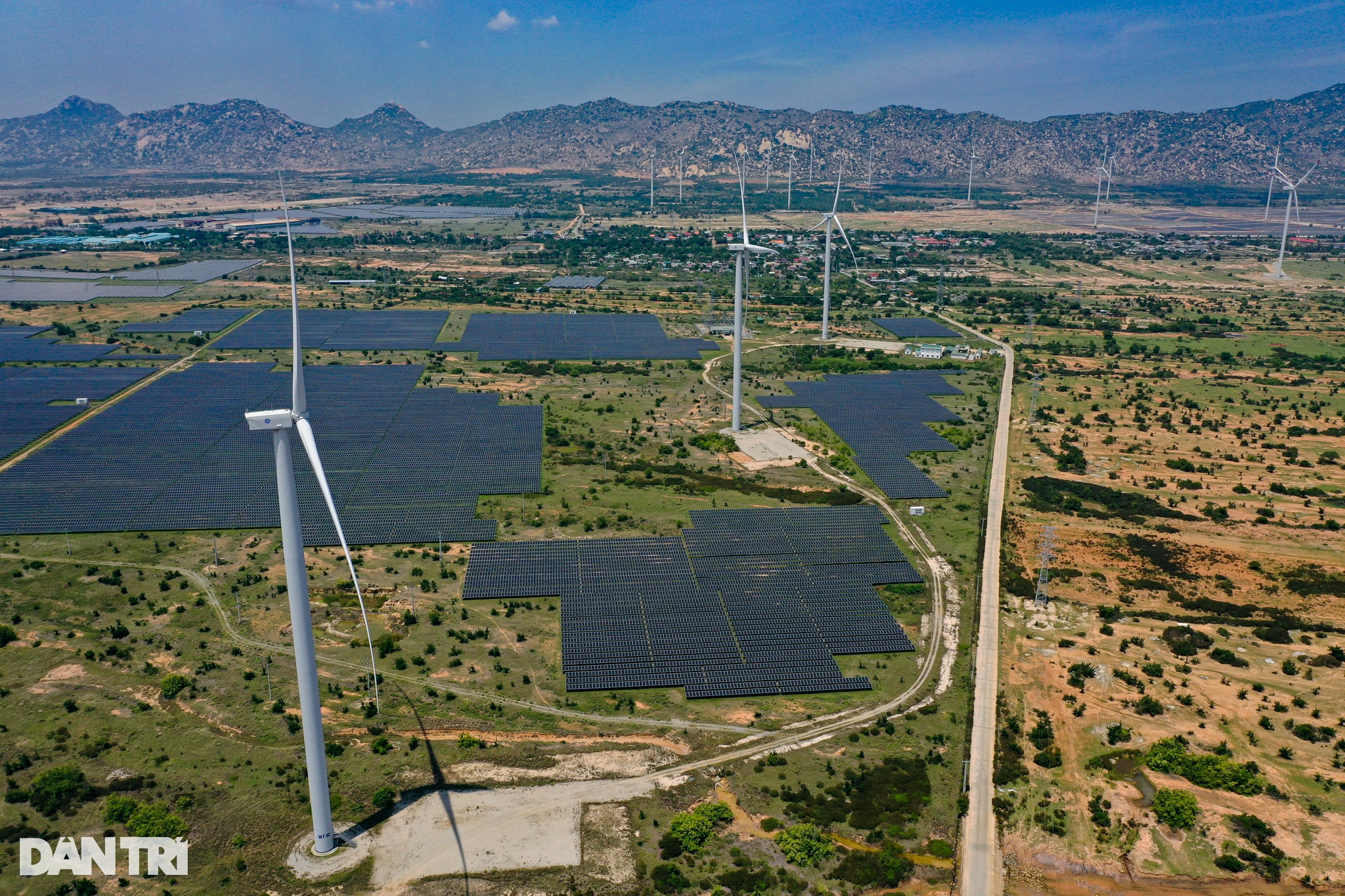
Not being fully paid for electricity sales has caused many projects to fall into a cash flow shortage (Photo: Nam Anh).
However, this person stated that from the January 2025 electricity payment period until now, the Electricity Trading Company (EPTC) under the Vietnam Electricity Group (EVN) has unilaterally withheld the payment and only paid about 50% of the committed FIT price, causing many projects to fall into a serious cash flow shortage. Meanwhile, the costs that still need to be paid by the investor include monthly operating costs (battery washing, labor, maintenance, etc.), principal costs, foreign bank loan interest, etc.
This person cited a solar power project in Phu Yen (now part of Dak Lak province), which began commercial operation on June 30, 2019 - on schedule according to the Prime Minister's Decision 11/2017 on the FIT1 price mechanism (9.35 cents/kWh). However, according to Circular 13/2017 of the Ministry of Industry and Trade, the COD threshold to enjoy the FIT1 price is stipulated as "before June 30, 2019", leading to inconsistent understanding between the parties.
Although the company asserted that higher-level documents must be applied first, EPTC still only temporarily paid 70% of electricity prices from 2023, without any official explanation.
"Due to lack of revenue, businesses are forced to use the measure of "emergency capital injection" from the parent corporation to maintain operations. Many loans face the risk of being classified as bad debt if the temporary payment situation continues to drag on. Some banks have taken some emergency support measures to wait for the handling direction from the Government . However, in the worst case, businesses cannot rule out the possibility of having to temporarily suspend project operations," he said.
According to the business representative, the biggest difficulty is that EVN unilaterally changes the understanding and implementation of the contract, without basing on the signed terms, from the CCA issue to the date of applying the FIT price. This puts investors in a passive situation and poses great legal risks.
"The lack of clarity and stability in policies is having a strong impact on the confidence of international investors. Several large corporations from Europe and Asia have withdrawn from Vietnam after several years of no progress. For existing investors, the level of optimism and willingness to expand is also clearly decreasing," the representative said.
Regarding the CCA issue, he said that businesses all want the Government to thoroughly consider this issue because this is an objective cause, not an intentional violation.
"For large corporations, when comparing between many markets, they will consider exchange rate risks, legal risks, capital recovery ability and transparency in policy implementation. When investing long-term, what they care about most is policy stability. Any changes in electricity prices, COD time or payment conditions directly affect the cash flow plan of up to 20 years of a project," he shared.
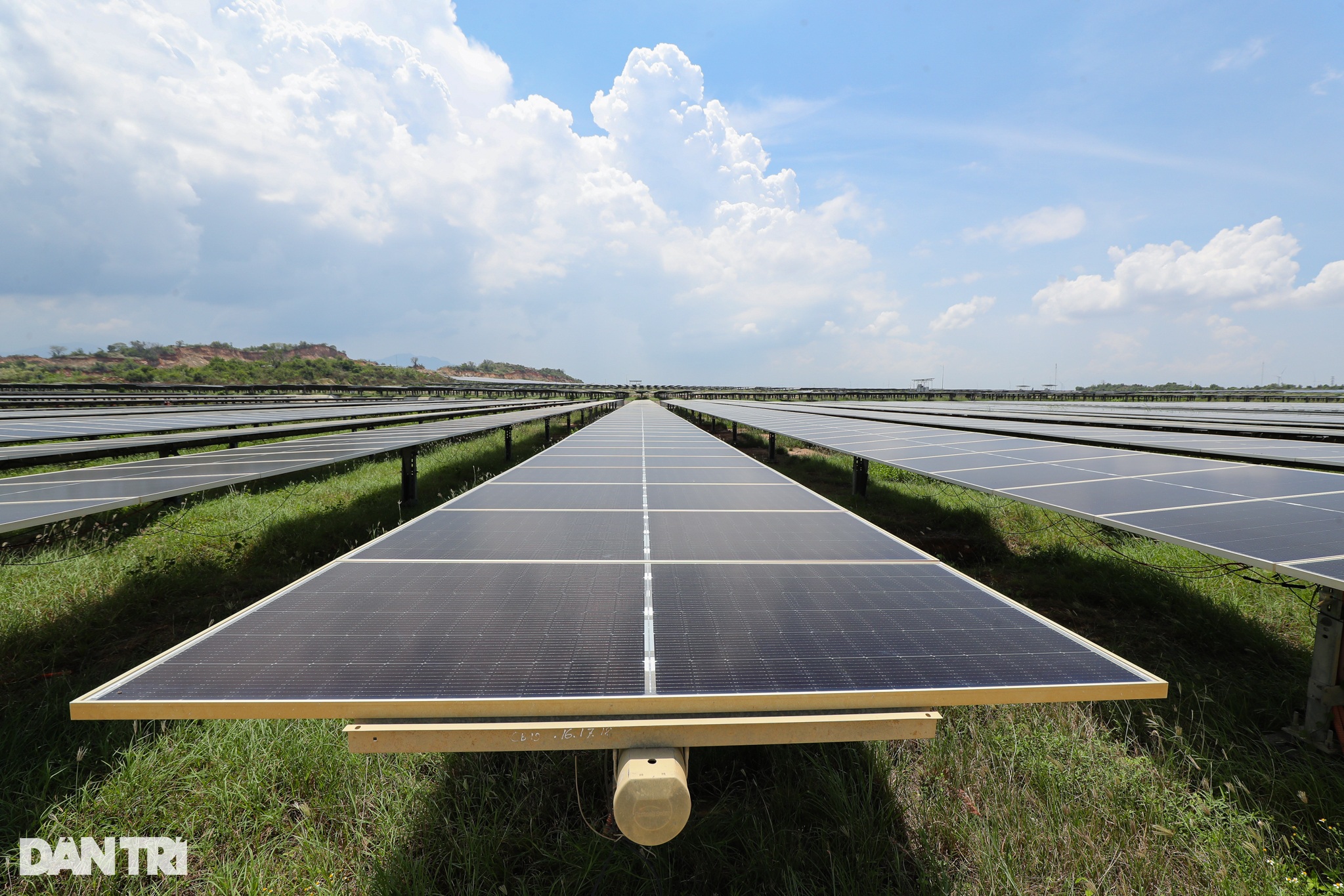
When the preferential FIT price mechanism was issued, Vietnam became an attractive destination for international investors (Photo: Nam Anh).
Mr. Nguyen Huu Quang, legal representative of 3 solar power projects owned by Dragon Capital with a total capacity of 120MWp, said that renewable energy is not a highly profitable sector, but in return, the unit chose to invest because of its low risk and promise of stable cash flow. These are the factors that make international investors willing to invest in the renewable energy sector in Vietnam.
However, he said that recent problems, especially EVN's temporary payment withholding, the risk of retroactive COD and electricity prices, are greatly affecting the financial situation of many projects. A solar power project in Quang Tri (49.5MWp) has been temporarily paid since January, causing cash flow to drop by 45%. "We are working with the bank to request a debt extension. If an agreement is not reached by July 10, the loan will be classified as bad debt group 1," said Mr. Quang.
He warned that if COD retroactively occurs, businesses will not only lose future cash flow but also risk having to repay the price difference that has been paid, with a very high risk of project bankruptcy and shutdown.
According to this person, when investing, foreign companies always rely on the legal documents of the project issued by the competent authority. "If the documents issued by the competent state agency do not ensure the legality of the project, then nothing can be considered safe anymore," he emphasized.
At the time of issuing FIT1 and FIT2 prices, there was no regulation requiring a CCA document to be recognized as COD or to enjoy FIT prices. Now, citing CCA conditions to reconsider electricity price benefits is inappropriate and is seriously shaking investors' confidence. "Currently, foreign investors with stuck projects are all cautious. No one dares to think about expanding investment if the problems are not handled fairly and transparently," said Mr. Quang.
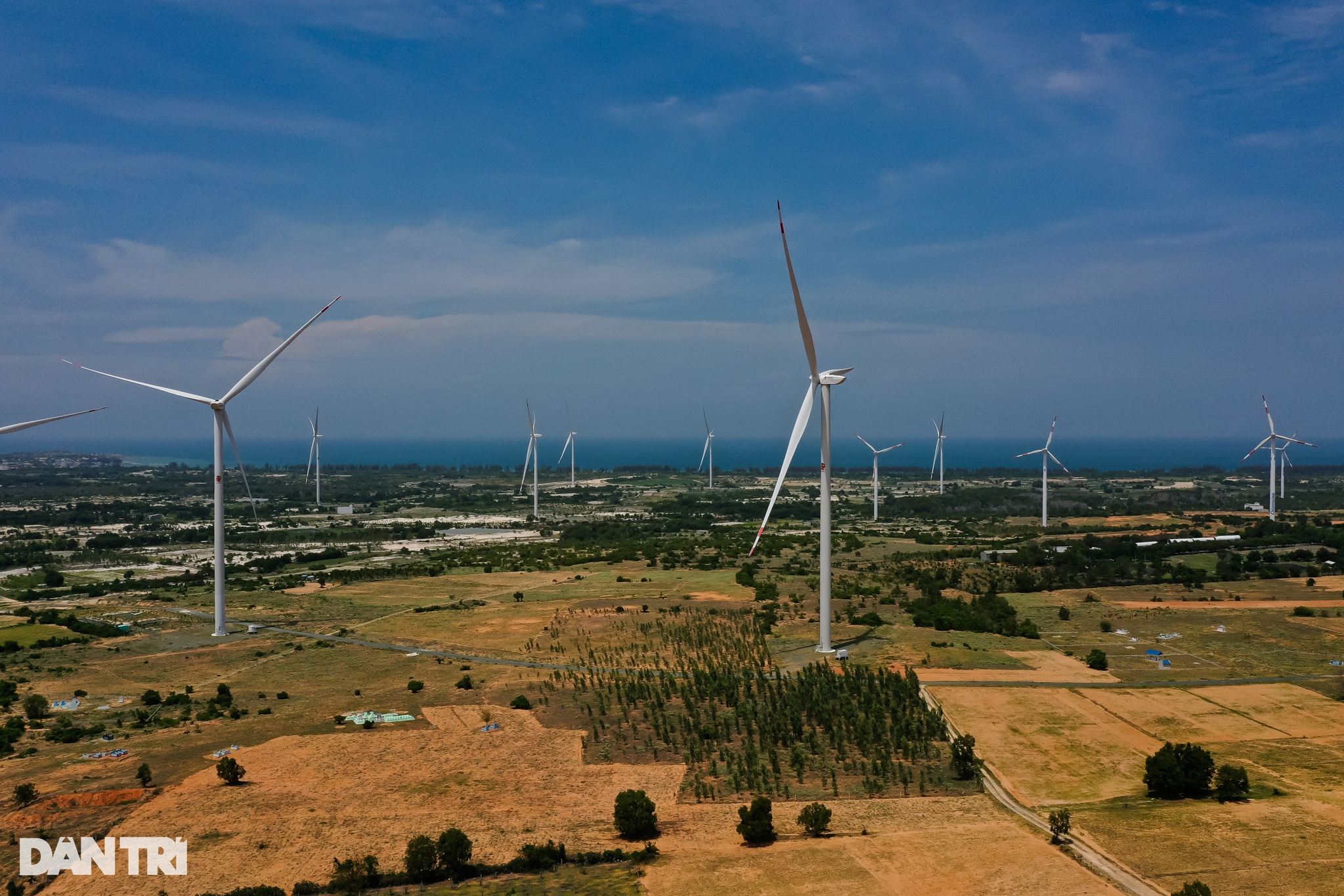
Thanks to the FIT price mechanism, Vietnam's solar power capacity has grown dramatically in just a few years (Photo: Nam Anh).
On EVN’s side, he said that the relationship between EVN and the investor is a contractual relationship. “EVN is the electricity buyer and cannot unilaterally change the terms of the signed contract. If there is a dispute, the Electricity Department (Ministry of Industry and Trade) needs to resolve it according to its authority. This is a special industry with only one buyer, EVN, so there needs to be a strong enough legal framework and sanctions to protect the interests of the seller,” he emphasized.
According to this person, EVN's current temporary payment has no clear legal basis. If the State management agency has a document requesting temporary payment, then EVN has the right to do so. "EVN invited the investor to discuss, but then still did as it pleased. The minutes clearly showed the disagreement from the enterprise, but EVN still continued to make temporary payment. This makes the dialogue insubstantial and unfair, the meetings with EVN are just formalities," Mr. Quang commented.
Up to now, the total outstanding debt of more than 150 factories/parts of factories with CCA after the effective date of the preferential price mechanism FIT1, FIT2 is about 150,000 billion VND. This person commented that if not resolved promptly, this debt could turn into bad debt, increasing the bad debt ratio of the banking system by 1.5-2%.
For domestic investors, a representative of one of the earliest renewable energy investment enterprises in the market shared that during the time of removing the remaining obstacles of Power Plan 8 and the adjusted Power Plan 8, many projects had delayed payment and only received partial payment according to the power purchase agreements (PPAs) signed with EVN due to inconsistencies in documents, especially regarding the acceptance of CCAs issued and in effect by competent authorities.
"This has had a very serious impact on project finances. Some projects have been facing debt repayment violations with domestic and international lending institutions. The company is facing difficulties with cash flow and financial balance, seriously affecting business operations," said a representative of this enterprise.
According to this person, from issues regarding CCA acceptance procedures, FIT prices to the more serious issue of retroactive electricity price information, businesses are facing great challenges. The decision of EVN and the Ministry of Industry and Trade to change the current purchase price by nearly 50% lower has changed the entire situation for investors participating in this field.
"The failure to resolve difficulties over a long period of time is creating the risk of losing investors' confidence, destabilizing the existing financial structures of enterprises as well as the opportunity to continue implementing projects in the approved Power Plan 8 and the adjusted Power Plan 8," the enterprise representative shared.
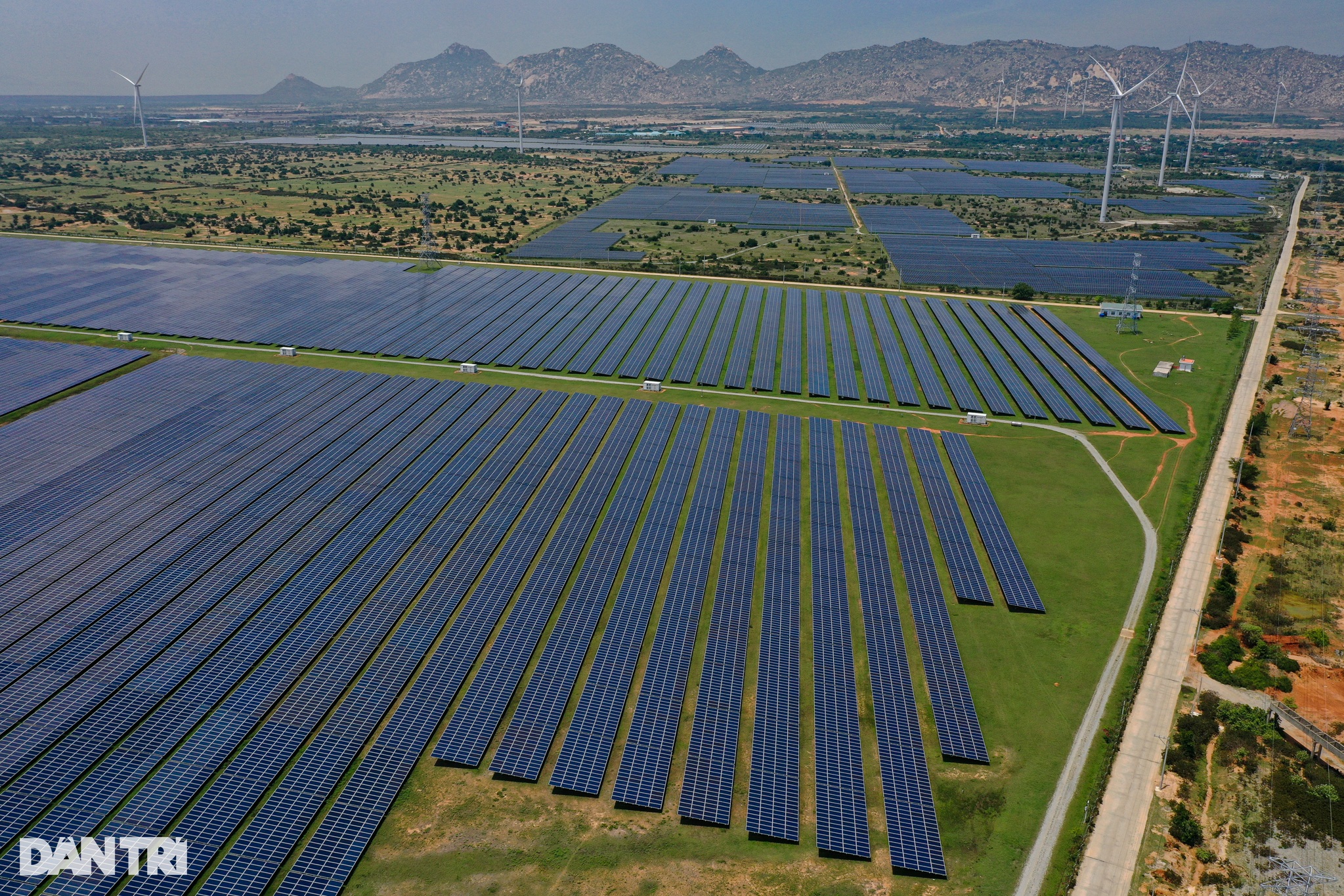
Expert: To develop, we need stable policies.
In a report sent to the Ministry of Industry and Trade in April updating the results of work on renewable energy projects facing difficulties and obstacles according to Resolution 233, EVN said that it has recently proposed solutions to pay electricity bills for projects facing difficulties.
Specifically, 25 solar power plants/parts of solar power plants (capacity 1,278MWp) currently paying according to FIT1 price (9.35 cents/kWh) will be temporarily paid according to FIT2 price (7.09 US cents/kWh) because the time of issuing the document approving the acceptance results falls during the time of enjoying FIT 2.
93 solar power plants/parts of solar power plants (total capacity 7,257MWp) currently being paid according to FIT price (including FIT1 and FIT2) will be temporarily paid according to the transitional ceiling price, due to the written approval of the acceptance results after the expiration of FIT2.
For 14 wind power plants/parts (total capacity of 649MW) currently paying according to FIT price, temporary payment will be made according to the transitional ceiling price. For power plants that do not have a document approving the acceptance results, EVN will temporarily pay the operation and maintenance costs.
Then, in the report sent to the Government on April 22 on the issue of FIT price, the Ministry of Industry and Trade said that although EVN had submitted many documents to the Ministry of Industry and Trade for synthesis, the Ministry assessed that EVN's reports did not meet the requirements of Resolution 233, in the direction of "selecting the optimal handling method based on analysis, evaluation, comparison of socio-economic benefits and minimizing disputes, complaints, and impacts on the investment environment; ensuring national security and order, energy security and harmonizing the interests of the State and investors".
In a report sent to the Ministry of Industry and Trade at the end of May, EVN affirmed that the proposed plan is consistent with the direction of the Ministry of Industry and Trade (in document 321 dated December 12, 2024), which stipulates: "For projects that are enjoying FIT prices and violate the conclusion of competent authorities due to not meeting the conditions for enjoying FIT prices, they will not enjoy preferential FIT prices but must re-determine the electricity purchase and sale prices according to regulations; recover the preferential FIT prices that have been enjoyed incorrectly through offset payments for electricity purchases".
However, EVN also believes that there is not enough information to assess the overall impact on the socio-economy and the domestic and international investment environment, as this is a macro issue that requires assessment support from higher levels of State management.
In the working minutes and official documents, the investors all mentioned and reserved the right to complain and sue in case EVN made temporary payments. EVN believes that the risk of complaints and disputes (including international complaints) is entirely possible on a large scale.
Therefore, EVN recommends that the Ministry of Industry and Trade review and coordinate with relevant ministries to make a comprehensive assessment of the socio-economic impacts, risks of domestic and international lawsuits, and impacts on the investment environment for the plan proposed by EVN, thereby deciding on the optimal plan to direct and guide EVN to implement.
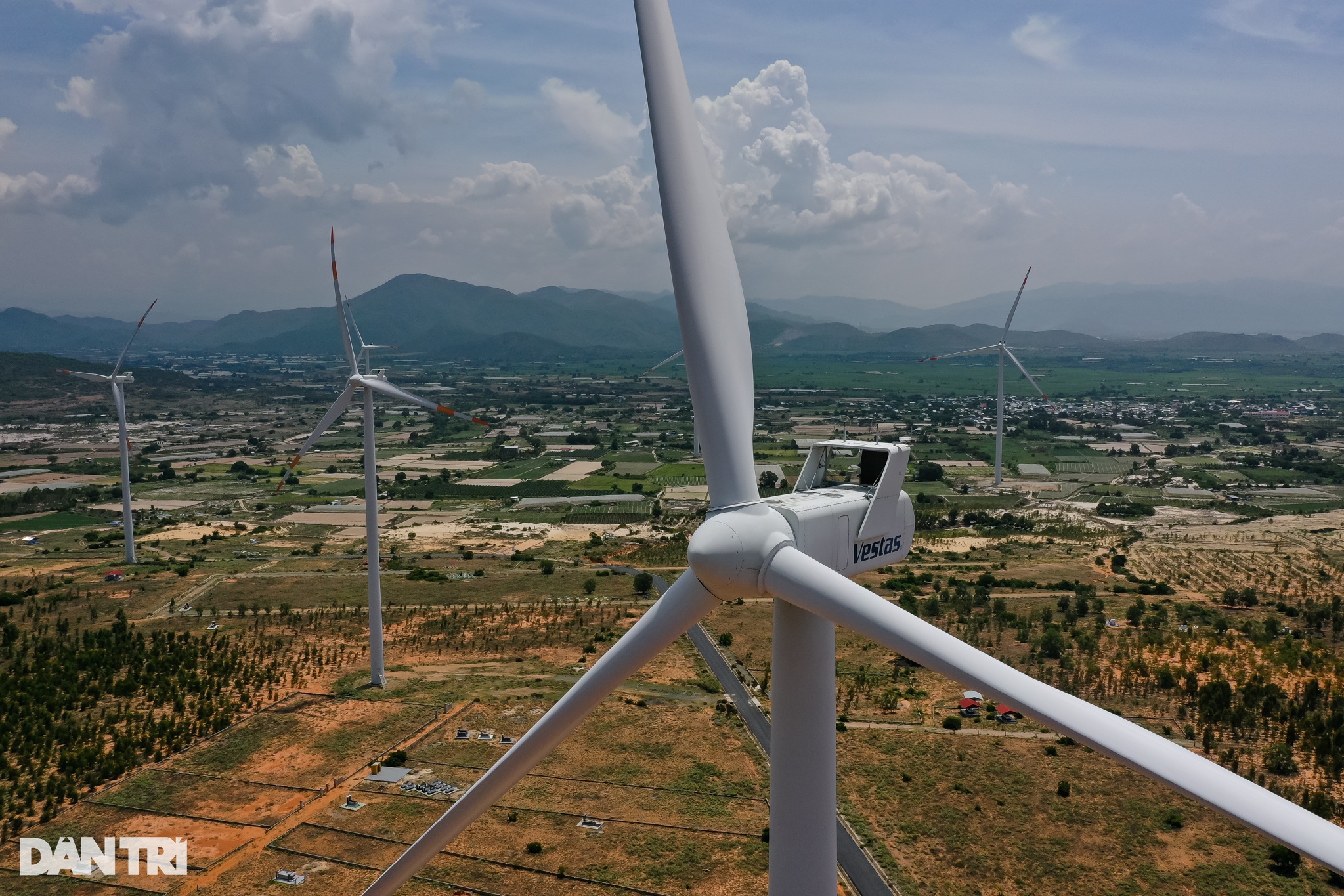
The transition from the FIT mechanism to bidding or PPA with ceiling prices is also unclear in terms of price determination method, risk sharing mechanism and implementation roadmap (Photo: Nam Anh).
The financial difficulties facing investors in the renewable energy sector are not only internal problems, but also reflect shortcomings in the electricity market operating mechanism and inconsistency in policies.
In that context, many experts believe that it is necessary to completely resolve the problems regarding FIT prices, the role of EVN and management agencies, as well as the need for a stable and transparent legal and policy framework to protect investor confidence and ensure long-term energy security.
Mr. Bui Van Thinh - Chairman of Binh Thuan Wind and Solar Power Association - said that currently, most businesses are facing financial difficulties, mainly due to not being fully paid according to the electricity purchase price committed in the contract. He said that businesses are suffering losses, but Vietnam's investment environment will be affected many times over if this situation continues.
Regarding the document approving the results of construction work acceptance, Mr. Thinh said that this is a regulation under the Construction Law. In renewable energy projects, investors, consultants and contractors all conduct internal acceptance according to the correct procedures. The presence or absence of CCA is not a condition of the power purchase contract and cannot be used as a basis for reviewing the signed contract.
According to Associate Professor, Dr. Dang Tran Tho - Director of the Institute of Energy Technology (Hanoi University of Science and Technology), one of the biggest barriers in the energy transition process in Vietnam is the incompleteness and instability of the policy framework.
To date, despite the promulgation of the revised Power Plan 8 and international commitments on net zero emissions, there is still no legal basis for renewable energy (Renewable Energy Law) or energy transition law. This has led to a situation where policies are somewhat fragmented, lacking high legal binding, and difficult to implement consistently between the central and local levels. The electricity price mechanism after FIT has not been issued in a timely manner, causing investors to lose confidence and delay many projects.
The transition from FIT mechanism to bidding or PPAs with ceiling prices is also unclear in terms of price determination method, risk sharing mechanism and implementation roadmap. At the same time, current PPAs are not highly legally binding, lack payment guarantee mechanism or sharing infrastructure - policy - legal risks, making it difficult for international financial institutions to participate in long-term investment.
In addition, he said that the overlap between the Electricity Law, Investment Law, Land Law and Environmental Protection Law is causing many problems in the investment licensing process. According to this expert, one of the prerequisites for effectively implementing the revised Power Plan 8 is to build and perfect an institutional system that is synchronous, clear, stable and flexible enough to adapt to technological and market trends.
According to him, it is necessary to urgently promulgate the Law on Renewable Energy, which specifically stipulates: Scope of regulation of renewable energy types; rights and obligations of investors; licensing, connection, and storage mechanisms; legally binding model PPA contracts; payment mechanisms for ancillary services and risk sharing. The law needs to be designed in line with international trends, with consultation with the business community and large financial institutions to ensure feasibility and investment attractiveness.
In addition, guiding documents such as Decrees and Circulars related to power project bidding, direct power purchase agreement (DPPA), storage pricing, and technical regulations on renewable energy integration also need to be issued soon.
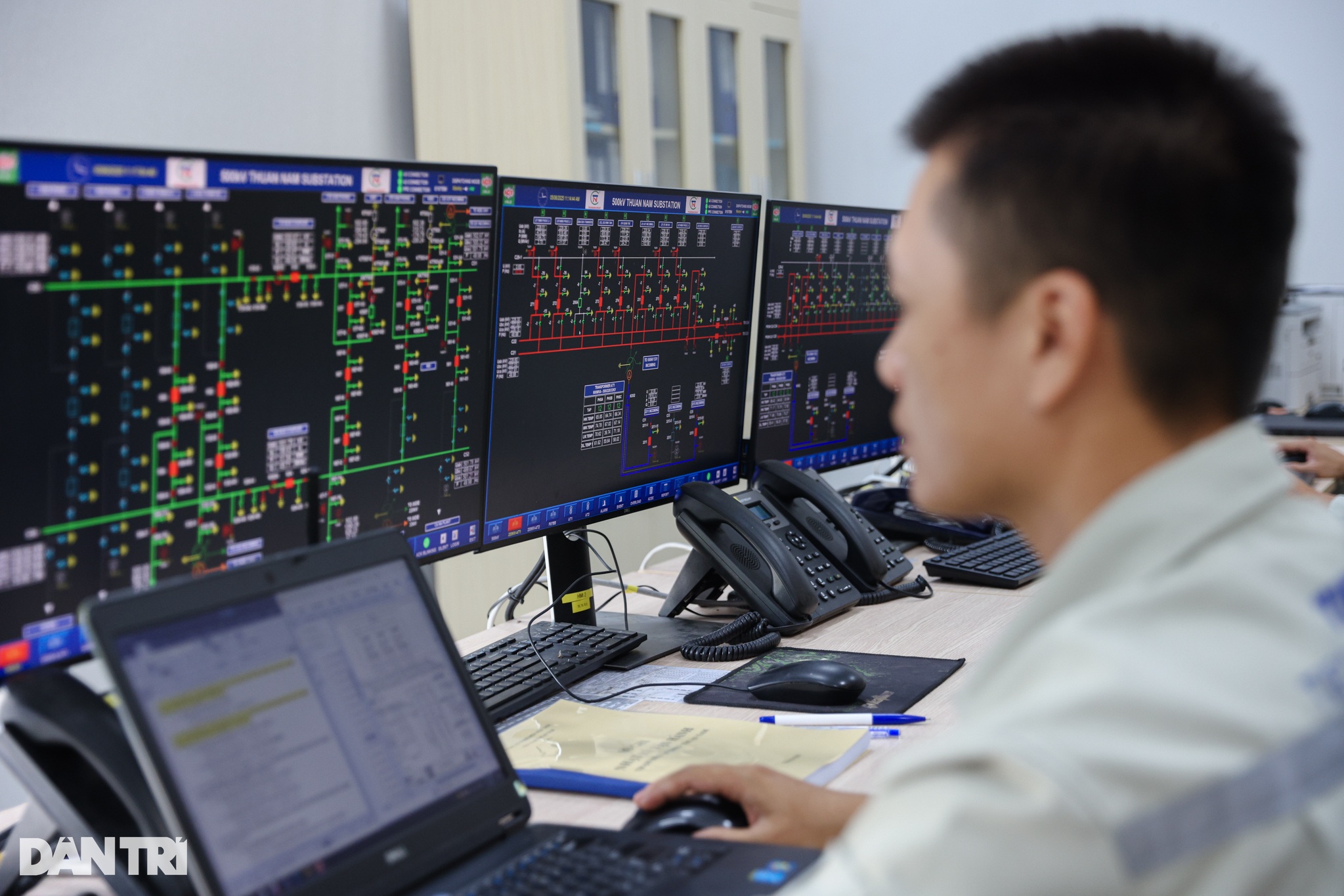
Experts believe that it is necessary to build and perfect an institutional system that is synchronous, clear, stable and flexible enough (Photo: Nam Anh).
Review each project
On June 28, the Government Office issued a notice conveying the direction of Deputy Prime Minister Nguyen Hoa Binh on removing difficulties and obstacles for renewable energy projects. The Deputy Prime Minister criticized a number of ministries, agencies and localities for not being really determined, still pushing and avoiding, in which the Ministry of Industry and Trade is the standing agency, presiding over and having the main responsibility.
Regarding the implementation of Resolution 233, the Ministry of Industry and Trade is assigned to preside over and coordinate with the Ministry of Justice, the Government Inspectorate, and EVN to review the conditions for enjoying FIT prices of each project, including classifying projects that submitted documents for inspection of acceptance work during the Covid-19 pandemic, and projects with foreign capital.
In particular, the Government leader requested these agencies to carefully analyze and evaluate the impacts, advantages/disadvantages of the temporary payment/recovery of FIT price as proposed by EVN, the risks of disputes and lawsuits including international lawsuits; determine the difference between the temporary payment value according to the proposed plan and the payment value according to the signed contract of each factory; costs incurred in case of lawsuits... and report to the Government for consideration before July 15.
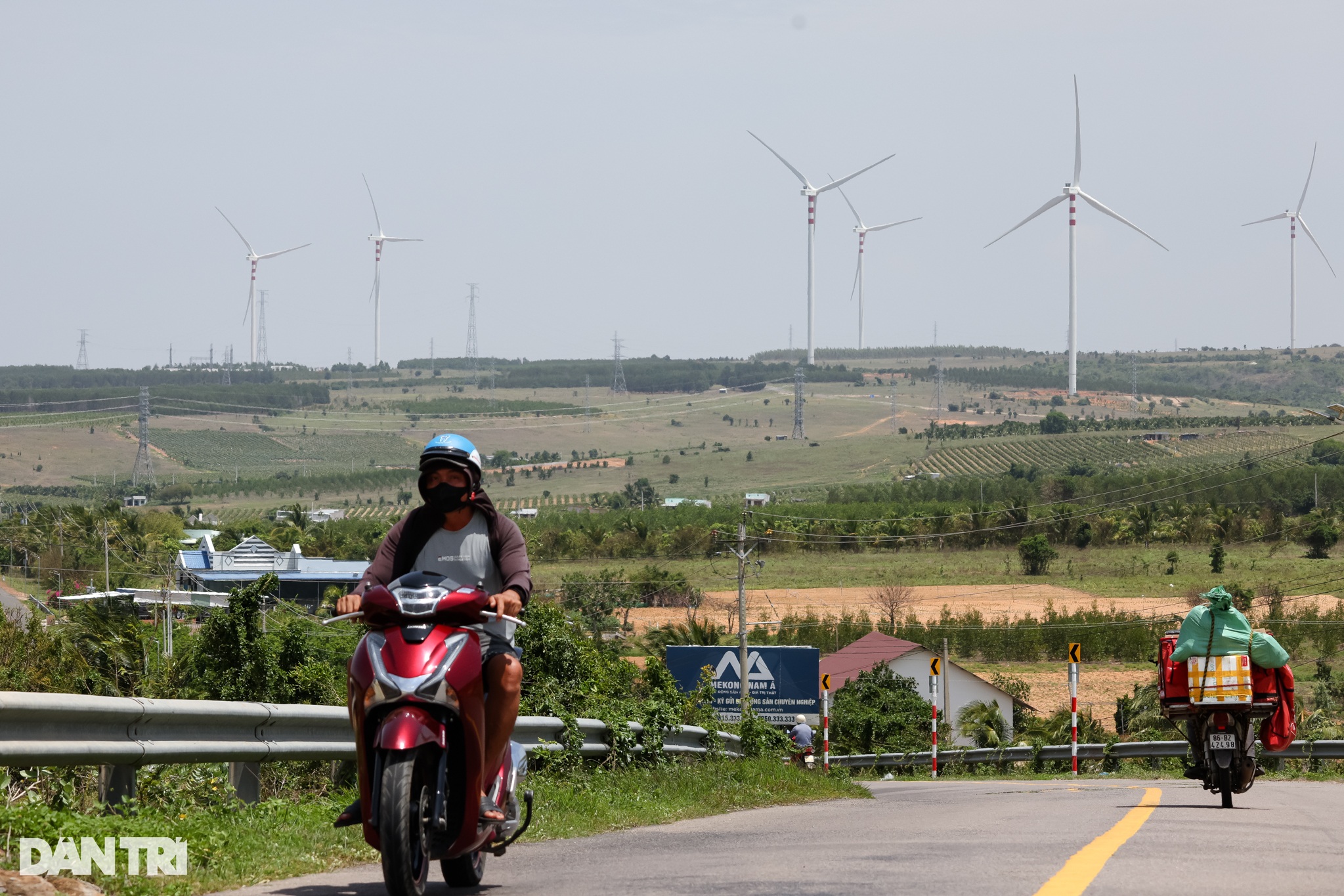
The Government requests relevant agencies to carefully analyze and evaluate the impacts, advantages/disadvantages of the temporary payment/recovery of FIT price as proposed by EVN and report before July 15 (Photo: Nam Anh).
To continue to remove difficulties and obstacles for projects in the coming time, the Deputy Prime Minister also assigned the Ministry of Finance to develop a plan to implement the Politburo's direction, advise the Prime Minister on tasks and roadmaps for handling stuck projects. The Ministry of Finance will take the lead in guiding ministries, branches and localities to review and classify projects according to their authority and coordinate with the Government Office to draft a directive dispatch, ensuring that there are no violations or loss of records.
Together with the Government Inspectorate, projects will be classified according to the level of violation, procedural order, or mechanism for appropriate handling. Projects without violations will not be re-inspected, while projects with violations will have their inspection authority decentralized. The Government Inspectorate will develop inspection plans and procedures to guide localities in proper implementation, avoiding harassment and negativity. Localities are responsible for proposing solutions and reporting to the Prime Minister.
Most recently, on July 7, at the meeting of the Central Steering Committee on preventing and combating corruption, waste and negativity, General Secretary To Lam requested to urgently complete the review, clarify the causes, and have specific solutions for each project and construction that is behind schedule, has long-term backlog, is inefficient, and has the risk of causing loss and waste; direct the resolute handling of difficulties and obstacles for the 2 Central Hospital projects; renewable energy projects; and the project to solve flooding caused by tides in the Ho Chi Minh City area.
Climate change is becoming more and more severe. Energy security has become a matter of survival for every country. The trend of shifting from fossil fuels to clean energy is taking place strongly. In Vietnam, this process is an urgent requirement to ensure sustainable development, in line with international commitments.
Power Plan 8, issued in 2023 and adjusted in April 2025, has set the goal of a fair energy transition, strongly developing renewable energy, gradually reducing dependence on coal power, while promoting gas power, wind power, solar power, biomass power and nuclear power. However, the implementation process is still facing many challenges when many projects have been invested but the official electricity price has not been unified, the upgrade of transmission infrastructure is still slow, has not kept up with the speed of power source development, and planning work is still lacking in synchronization...
The series of articles “Fair energy transition in the 8th power plan” by Dan Tri Newspaper will reflect the overall picture of the orientation, clarify the current situation in the South, especially in localities with great potential for renewable energy development such as Ninh Thuan and Binh Thuan, while recording the thoughts and expectations of people and businesses in the transition process. The series of articles contributes to spreading awareness, promoting policy dialogue and proposing solutions for a sustainable and effective energy development future.
Source: https://dantri.com.vn/kinh-doanh/giac-mo-dien-xanh-phu-bong-xam-go-vuong-ra-sao-20250707201311825.htm




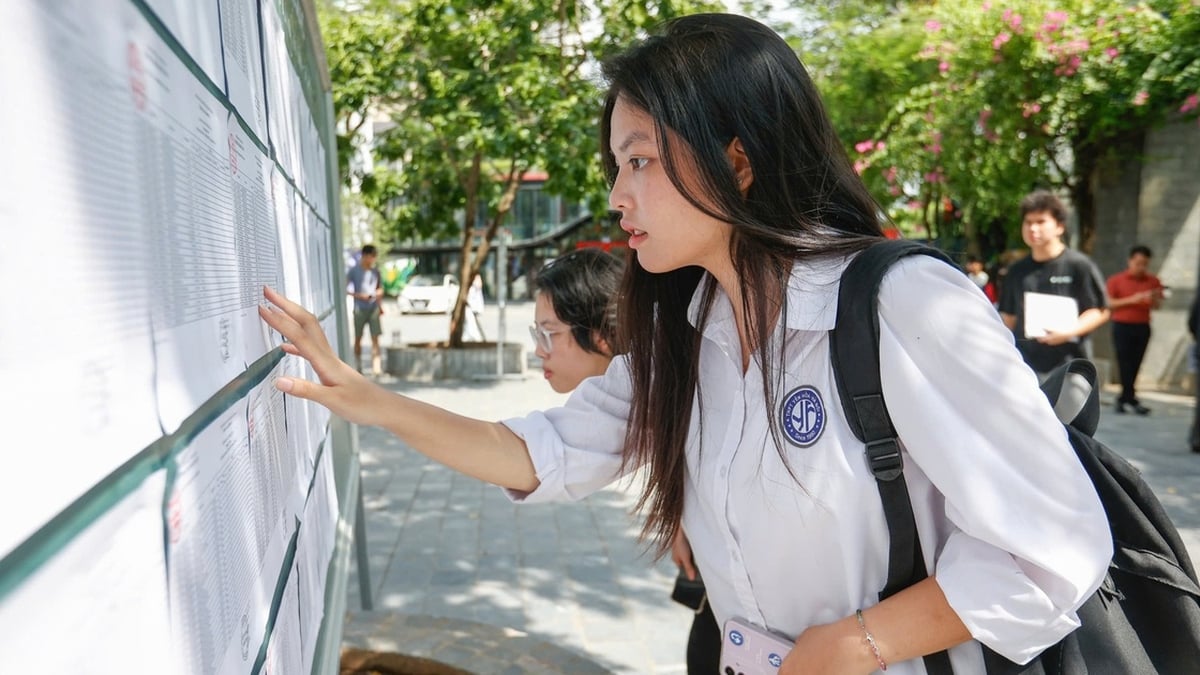



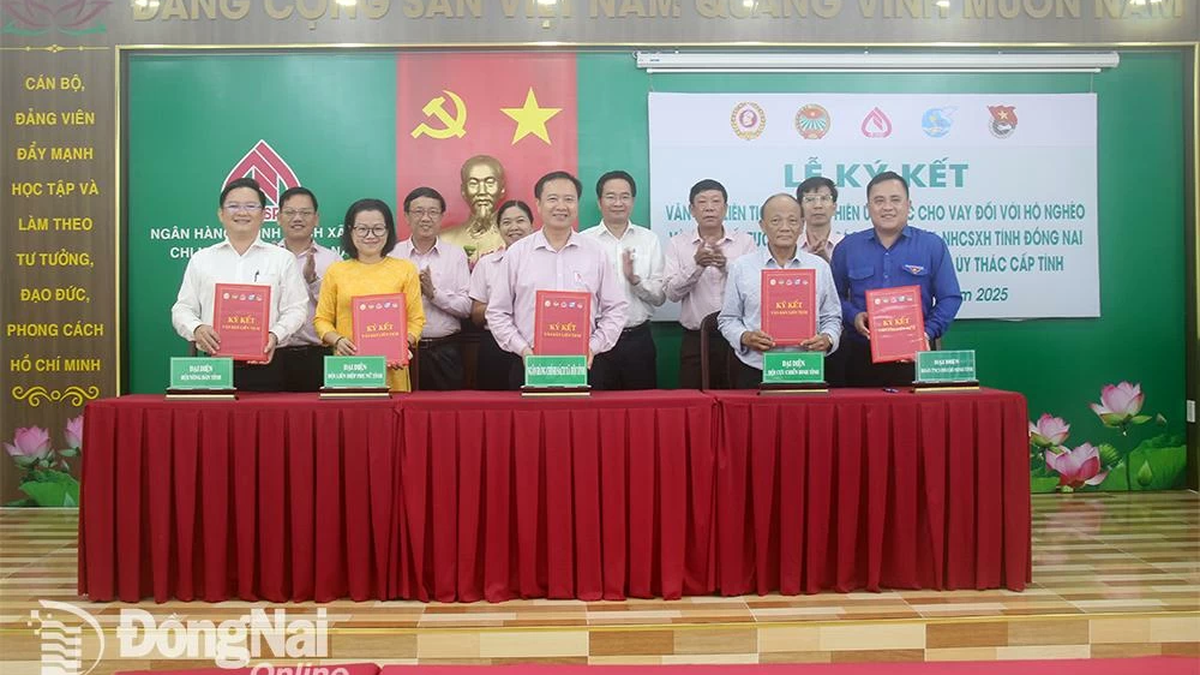
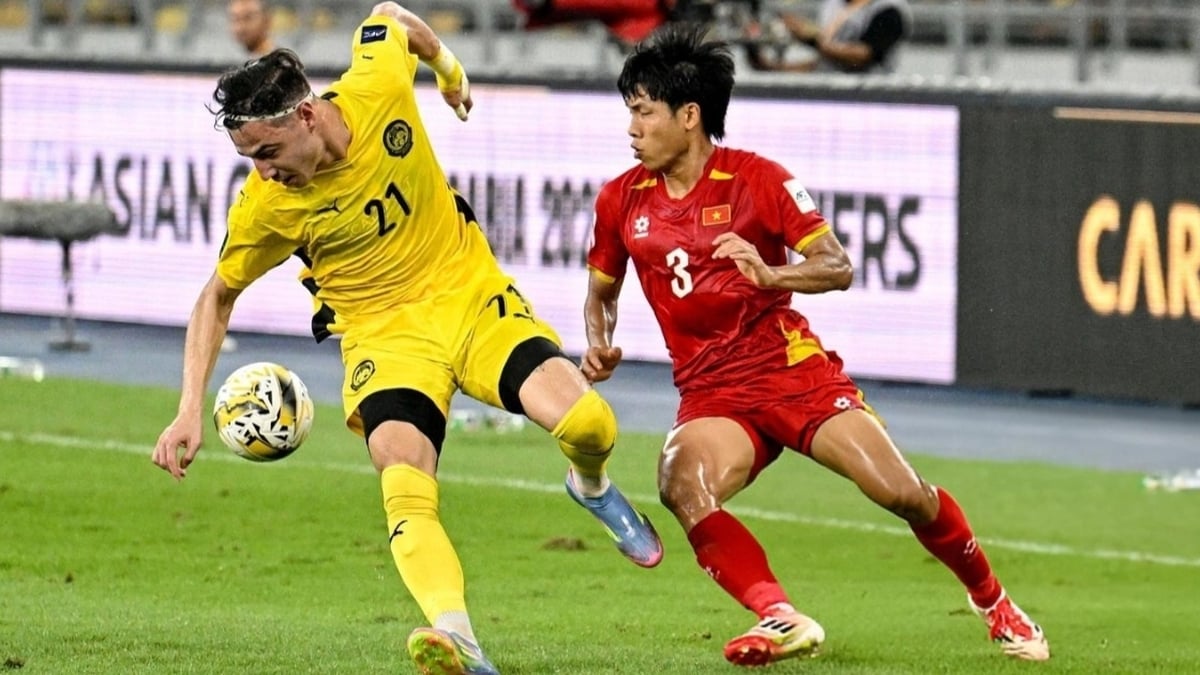
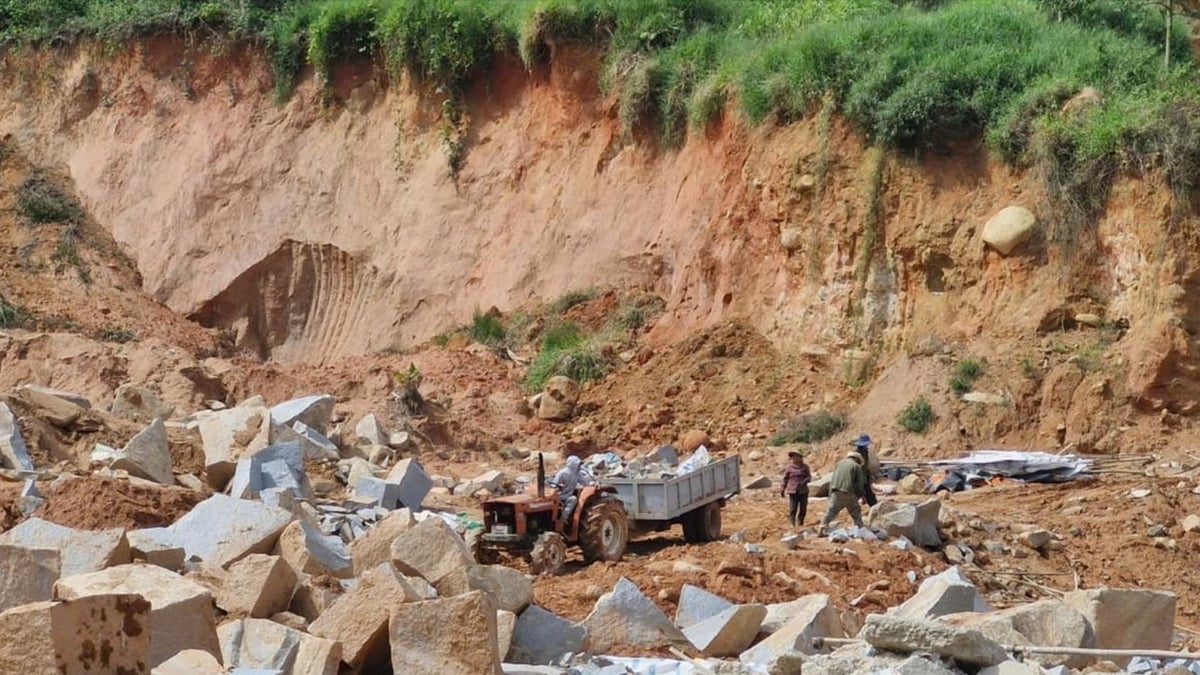








































![[Maritime News] More than 80% of global container shipping capacity is in the hands of MSC and major shipping alliances](https://vphoto.vietnam.vn/thumb/402x226/vietnam/resource/IMAGE/2025/7/16/6b4d586c984b4cbf8c5680352b9eaeb0)













































Comment (0)